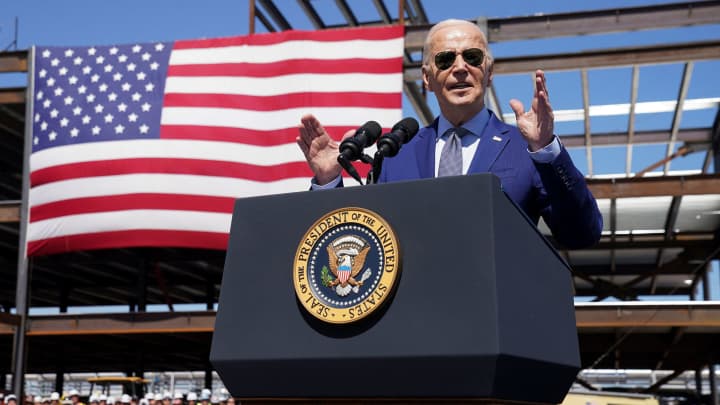
The set of awards announced so far highlights how the focus at the Commerce Department has been on what's known in the industry as "front-end manufacturing," or the production of wafers themselves, said Paul Triolo, technology policy lead at the Albright Stonebridge Group.
Triolo attributed that focus to both "the highly political nature of the awards," and a need to show progress in the near-term on advanced manufacturing capacity, he wrote in an email to CNBC.
But Raimondo to build out the U.S. chip supply chain from end to end by 2030. Achieving that "will require considerable juggling of awards to upstream and downstream players in the supply chain," Triolo wrote.
Schmidt emphasized that the Commerce Department's focus is already on getting funding to all of those players, and that there will be "significant investment" throughout the supply chain.
Plus, given that the awards announced so far have already prompted pledges from private companies to invest more than $300 billion in leading-edge production, Schmidt said he expects "an enormous amount of secondary investment" to soon benefit the smaller suppliers.
Commerce has also set aside $500 million in award money specifically for the companies whose projects will total $300 million or less in capital investment.
"We'll really be seeing those benefits across the industry," Schmidt said. "And I still think we're going to be making very significant investments in the upstream supply chain and really building out an overall portfolio that is advancing economic and national security interests."
One such supplier in talks with Commerce for a CHIPS award is IQE, a U.K.-based company that produces compound semiconductor wafers for major companies like Apple.
IQE chief executive Americo Lemos told CNBC that while he understands the interest in funding leading-edge chip manufacturing in order to build out artificial intelligence systems, funding smaller companies that play support roles is just as crucial to ensuring the U.S. chip supply chain is both secure and resilient.
"We need to make sure that we continuously look at the supply chain as a whole, in an environment where geopolitics aren't easy to deal with," Lemos said in an interview.
"Of course the industry is focused on AI, GenAI and its benefits and applications, but it's not enough to build high performance chips," he continued. "There's no AI without compound semiconductors—very simple."
With the remaining grant money dwindling, forthcoming awards will be smaller than the multi-billion-dollar packages that have been doled out so far, Schmidt said. But for small companies, even a modest award could have significant impact.
"There's a lot that a smaller amount of money can do for those upstream projects," said Jimmy Goodrich, senior advisor for technology analysis with the RAND Corporation. "There's a lot of runway left."



